Marcel Kittel: I'm convinced I can beat everyone
Procycling's exclusive interview with the German sprinter
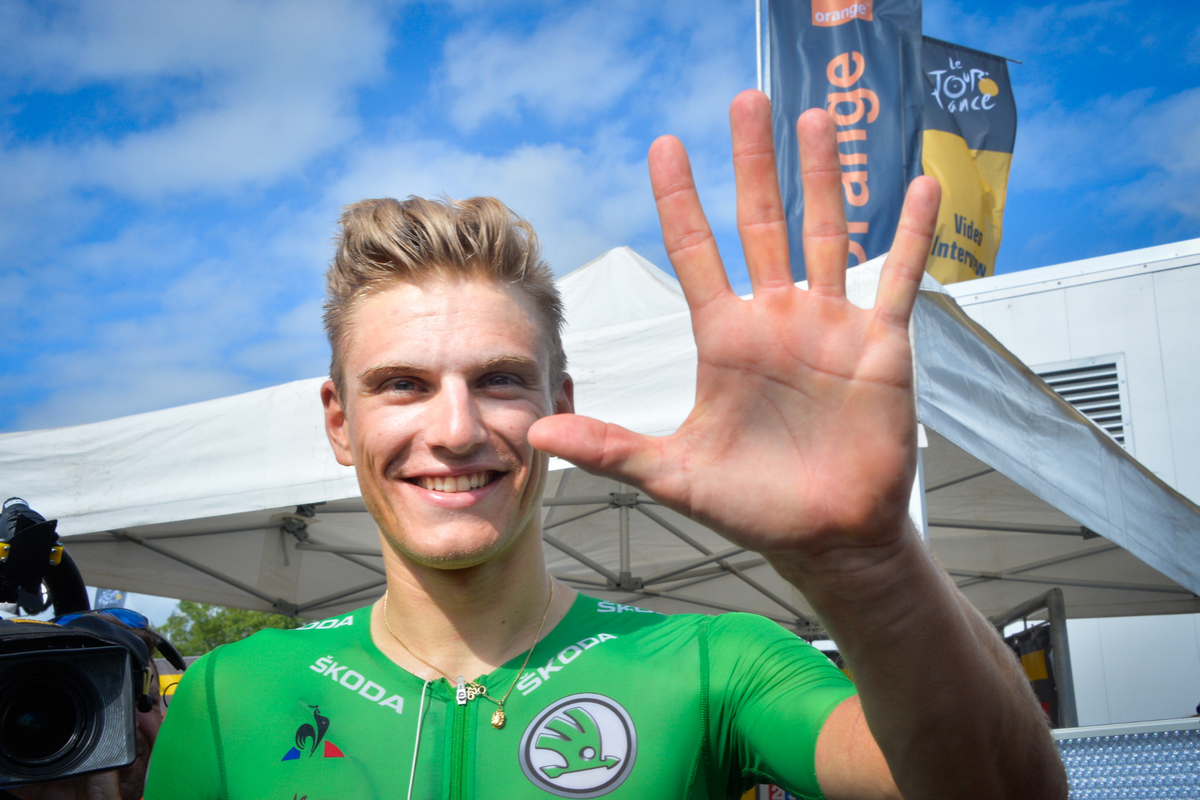
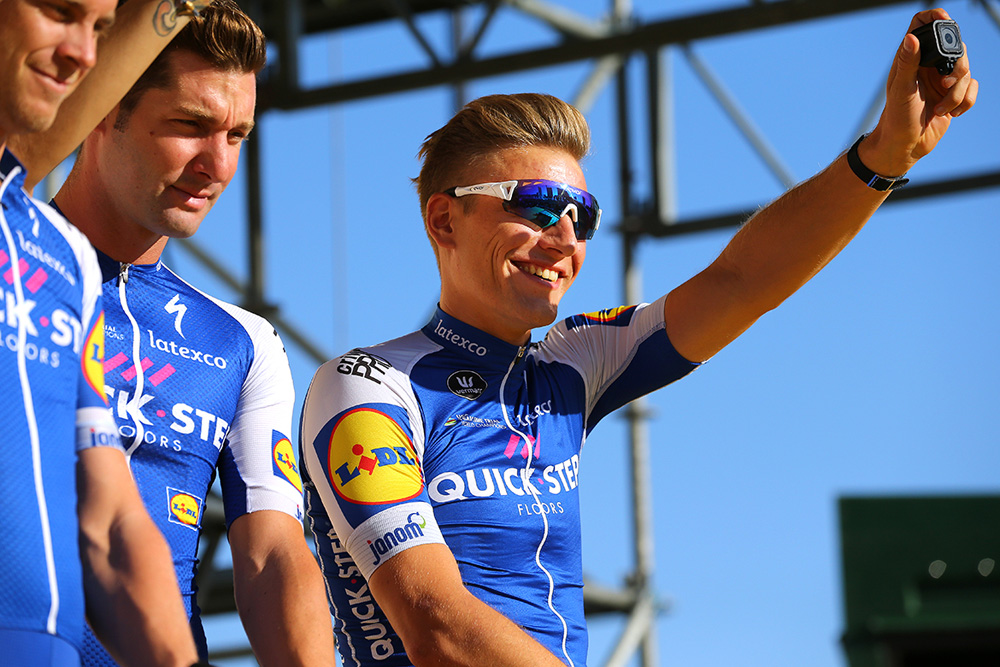
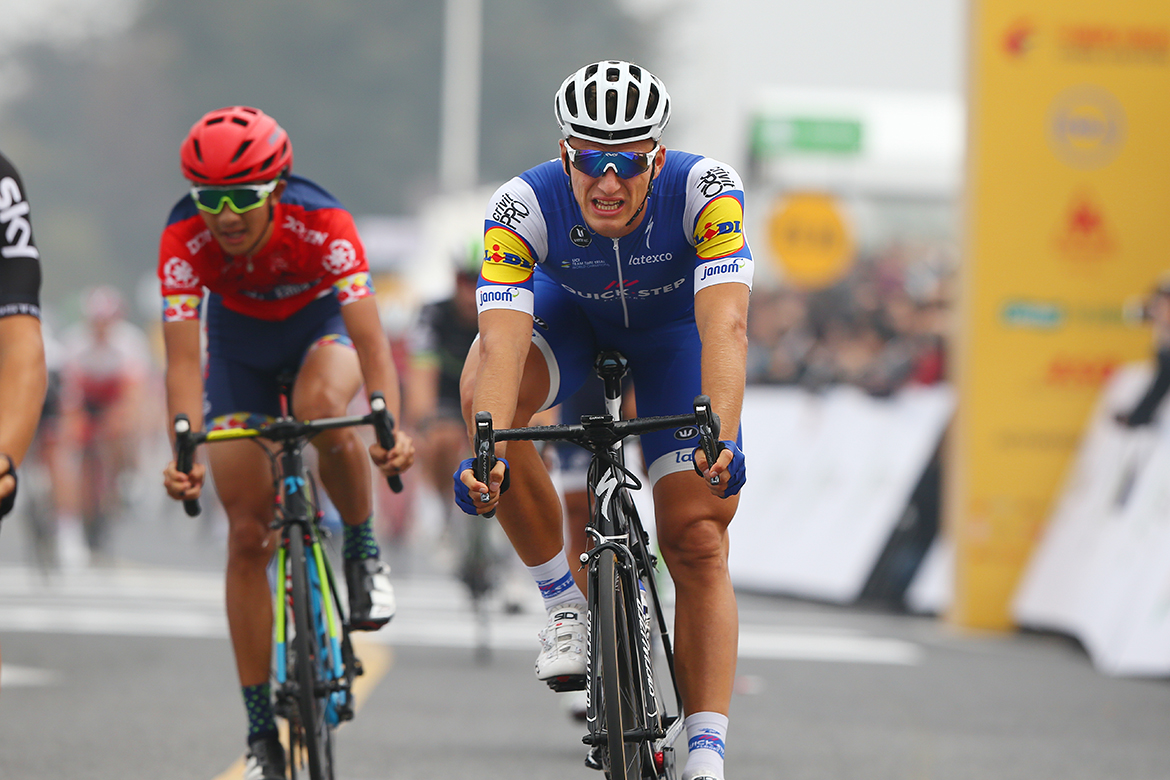
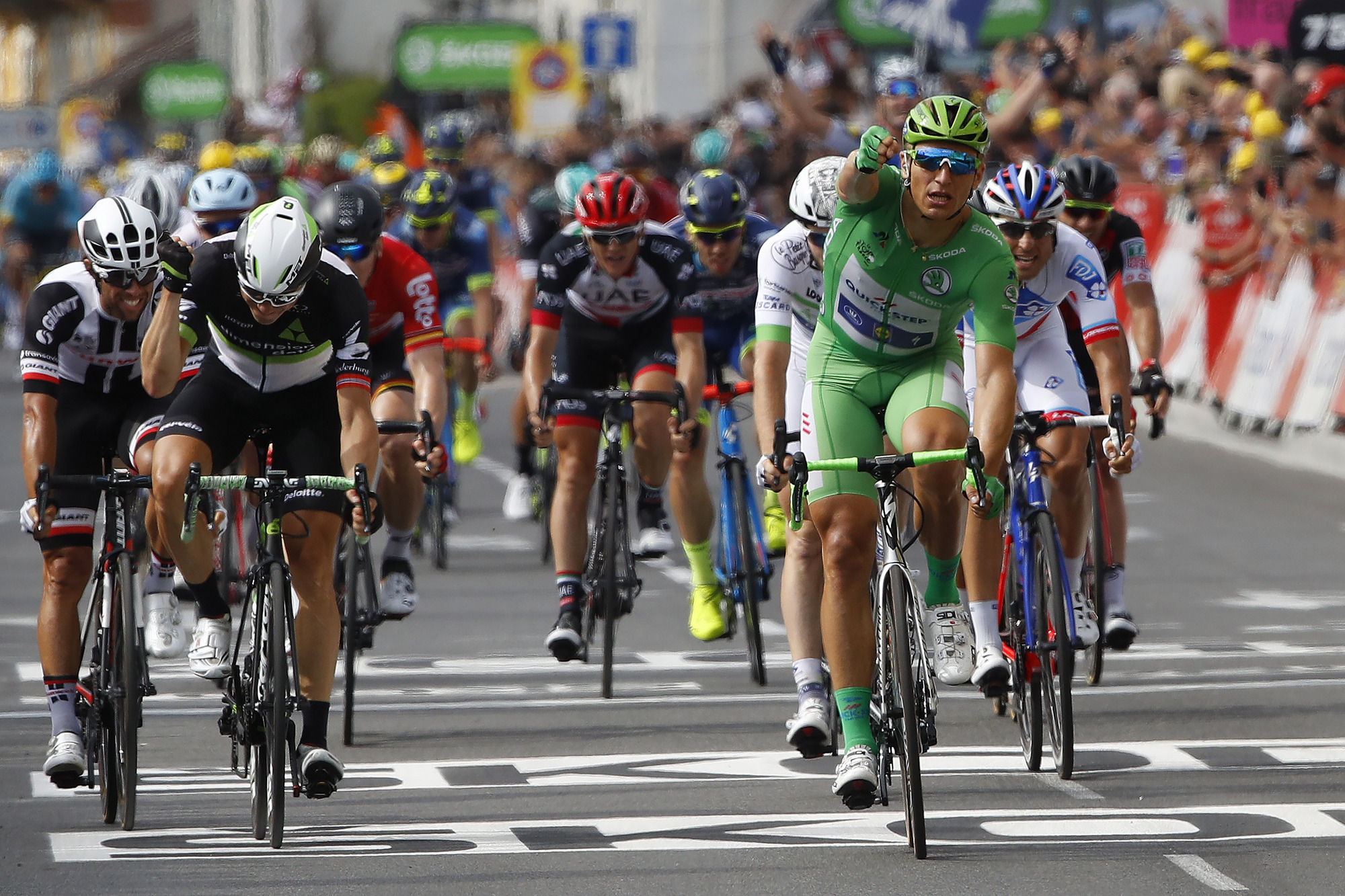
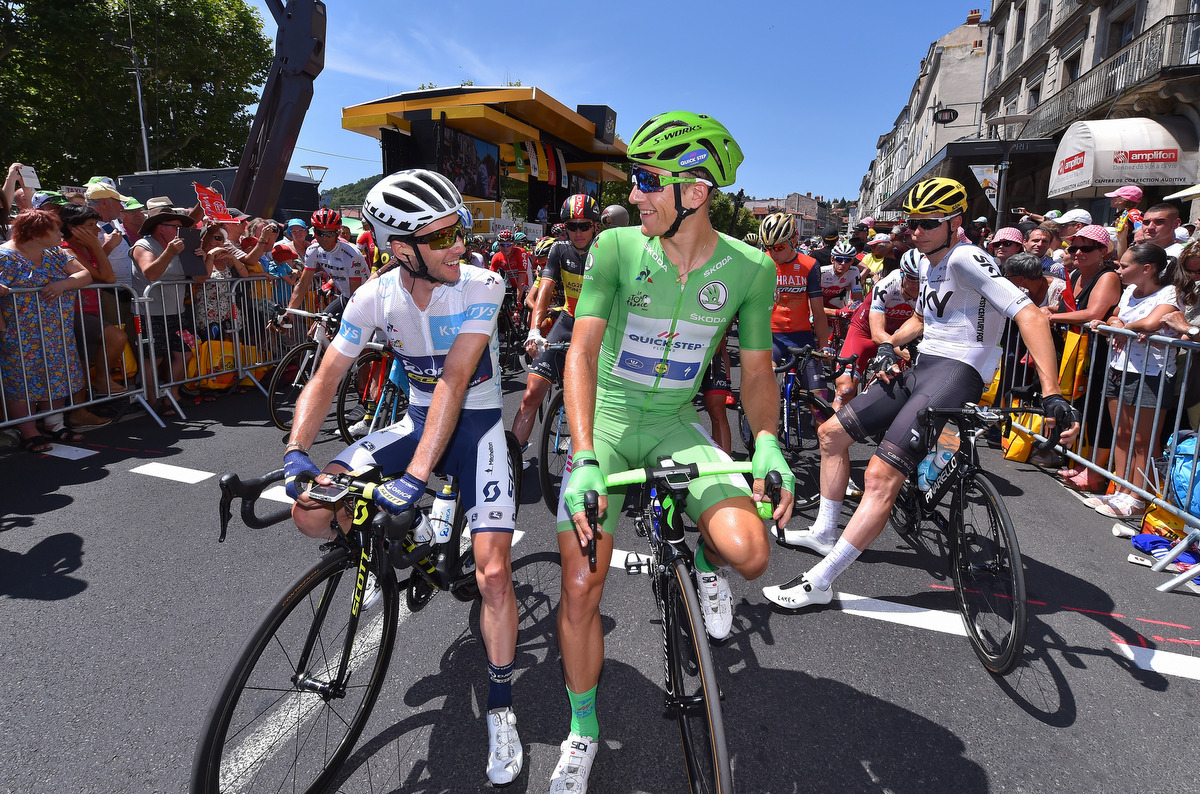
This feature appeared in the December issue of Procycling.
With 14 victories to his name, Marcel Kittel was the joint most prolific race winner of 2017. A dominant five-stage haul at the Tour de France in July put him on top at the biggest stage of all, and showcased again how formidable he is when the road is flat. Procycling met the German sprinter at home to reflect on the season and find out what is still to come.
My first realisation that Marcel Kittel was terrifying for other sprinters came during the 2013 Tour de France. It wasn’t the four stage wins but his defeat in Saint-Amand-Montrond which was telling. His team, Argos-Shimano, had been done over in the crosswinds by a coalition of sprint teams and GC teams wanting to distance, respectively, Kittel and Alejandro Valverde. Never has so much common cause been found in a Tour stage between teams with such vastly differing goals – Omega Pharma, Cannondale, Belkin and Saxo Bank sent their men to the front, and the gap grew and grew.
I waited at the Argos team bus after the stage had finished. Mark Cavendish had won the stage a clear 10 minutes before Kittel came in, but defeat is sometimes more interesting than victory, and I wanted to see how Kittel dealt with it. He arrived, his face streaked with sweat and dirt and his team kit grey with windblown dust. “I think they don’t want to sprint against me,” he said, without the slightest hint of disappointment.
Maybe he knew that he’d have another chance, which would come in Paris. Maybe three wins so far, two in the previous three stages, had already made his Tour as successful as it needed be. Admittedly, Kittel had had 100 kilometres to get used to the idea that he wasn’t going to win that day, but I’ve watched other sprinters deal with defeat and it has been different - generally denial or anger. Cavendish, to take an easy example, hates getting beaten, though he’s made a grudging peace with it these days even if he doesn’t like it. Robbie Hunter was so pissed off at getting beaten in one Tour stage in 2007 that he lifted his front wheel off the ground and bashed it down again, accompanied by a loud yell. Riders banging their handlebars with their fists is common. Kittel, on the other hand, was fine, as cool and calm in defeat as he often is in victory, which suggests to me that the coolness and calmness is ingrained.
The two things I learned in Saint-Amand-Montrond were that first, Kittel’s rivals had done everything in their power to stop him from sprinting against them, because they were scared. And second, that Kittel knew it.
We’re four years, three months and 11 Tour stage wins on from that day in France. Kittel is digesting his 2017, enjoying a few days of not doing much in his adopted home town of Kreuzlingen, on the German-Swiss border. He’s looking forward to continuing to not do much on a holiday in Tenerife – no bike, no altitude training at Mont Teide, just the beach – for a couple of weeks.
Get The Leadout Newsletter
The latest race content, interviews, features, reviews and expert buying guides, direct to your inbox!
“I think it was a great year,” he says. “I reached almost every goal that I set. The only setback, if you can call it that, was Paris-Nice where I wanted to win a stage.”
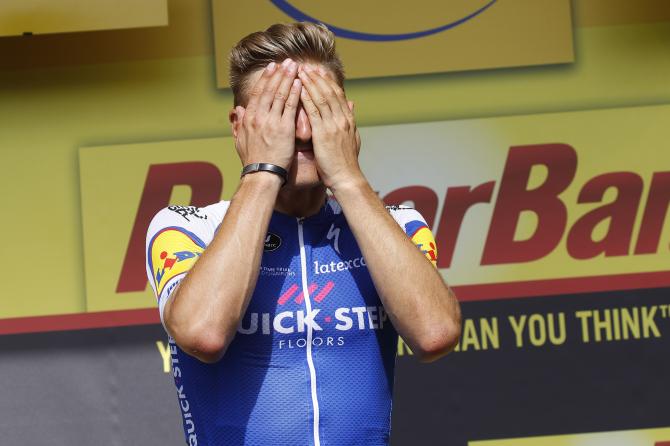
Kittel has always started the season well. In seven years as a pro, the longest he’s had to wait before his first win was February 11 in 2013 (though his only win in the first half of 2015, his single annus horribilis, was in the TDU Classic on January 18, which is not a UCI-sanctioned race). This year, he started winning in January, at the Dubai Tour, with three stages and the GC, followed by a stage at the Abu Dhabi Tour.
“It wasn’t my expectation to go there and win two or three sprints and the GC, but it went well from the start. I’m an athlete who can come out of training with good condition. I’m not a guy who needs a lot of racing to get into shape,” he says. “Philippe Gilbert says, ‘Give me three races a week – Saturday, Sunday, Wednesday, Saturday, Sunday again and I’m going better every day,’ But if you do that with me, I’m done after two weeks.”
Kittel didn’t win at Paris-Nice. It’s not an easy race to win sprints in anyway – bad weather and crosswinds often affect the flat stages, and then it gets hilly. All of these things level the playing field – give Kittel a straight sprint in decent weather on uncomplicated terrain and he often wins, but these things rarely combine in Paris-Nice. “In the beginning there was just a bit of rain when Démare won [on stage three], but after that it was full gas crosswinds and we were always in groups. It was almost like a Classic,” he says.
“That’s the point where my speciality as a pure sprinter gives me less advantage and those guys who are more Classics riders can do more, and that’s exactly what happened. I was always there. I was always in a good position and I never missed an echelon, but in the end I wasn’t the fastest. The one day I could have won, I struggled with the cold. That’s simply what it is.”
Other sprinters might have rued the missed opportunity, but Kittel is not greedy for the sprints he can’t win, just voracious for those he can. He put it down to experience.
Even without a stage win in Paris-Nice, Kittel amassed nine wins by the end of June. Then came the Tour, starting in his home nation.
“Five wins in 11 days. It’s not so bad,” he says. “I was very confident. I was myself; I wasn’t trying to force it. It just happened, and it sounds weird and magical, but that’s how it is with some things in life. I prepared well, I was there and everything was good, but the final step isn’t always in your hands. It also depends on luck, but I think I was always in the right place at the right time.”
Nothing could touch Kittel in the first half of the Tour. He beat everybody in Liège on the second day, then his rivals started dropping like flies. Cavendish took himself out on stage four in Vittel, and Peter Sagan, eliminated by overzealous commissaires, was collateral damage. Arnaud Démare got sick. André Greipel, Alexander Kristoff and Nacer Bouhanni were mediocre. Dylan Groenewegen was inconsistent. Kittel’s most dangerous rival turned out to be Edvald Boasson Hagen, who’d gone to the race on lead-out duties for Cavendish. Twin victories followed in Troyes and Nuits-Saint-Georges, and then in Bergerac and Pau. Kittel was in the green jersey, by a massive margin. Then it all went wrong, though it’s hard to describe a Tour in which a sprinter has won five stages as such.
“I had stomach problems after the 11th stage. That took some energy, but I recovered,” recalls Kittel. “Then I got a cold, which is normal – when you can’t eat, your body gets weak, your immune system gets weak and you get a cold. After that I crashed. My body was on its limit.”
The crash which Kittel suffered in the early part of the first big Alpine stage, to Serre Chevalier, wasn’t in itself that bad, but he says that the accumulation of fatigue tipped his body over the edge. “I bruised my shoulder and hip and after the crash I was really struggling to pedal normally. There were no serious injuries, but the combination of everything with a tired body and a cold on top of the crash it was just too much and I couldn’t find my way back into the rhythm you need on those huge climbs. It was the wrong stage for that to happen,” he says.
Kittel may never get a better chance to win the green jersey, though Michael Matthews had reduced the gap between them from 133 to nine points by the time Kittel had crashed out.
“The green jersey was happening without targeting it,” he says. “I will never start the Tour and say I’m not going for it, because there is always a chance for it. But even if the situation was there, like this year, I was still trying not to put too much pressure on it. Maybe it distracts me from my actual goal, which is stage wins. I was waiting to see how the standings were. After stage 11, that was the turning point. I realised this could be the moment, now or never.”
Then he laughs. “A day later I was already feeling unwell. I thought, s**t, let’s just see what happens. Obviously it didn’t go so well, but that’s life.”
Kittel had won every month from January to July, but a rushed recovery and the necessity to take a longer break got in the way of extending this series of results. He tried to come back at the BinckBank Tour, then the EuroEyes Cyclassics Hamburg but recorded a DNF in both. He then took part in a few small one-day races to bring his season and his time at Quick-Step floors to a close.
“Maybe I started too early with the BinckBank Tour,” he says. “That wasn’t in my favour, but I took those decisions as well, so I don’t want to complain. I learned from it, and I wouldn’t do it again like this – the Tour was very demanding and I had to refill the mental tank as well. I recently saw a picture of myself from Hamburg, and I looked really tired. In the end, I needed a period where I was able to build up without any expectations and have my freedom.”
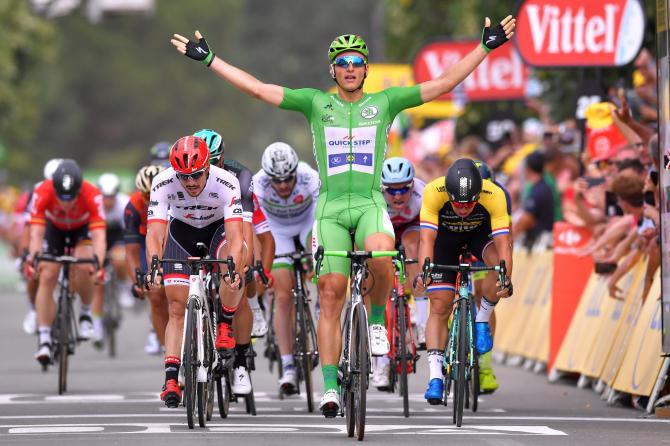
The fallow period Kittel experienced at the end of 2017 doesn’t change my impression that when things are uncomplicated and he’s at his best, he’s the fastest sprinter in the peloton. There are periods where he makes it look easy. The 2013, 2014 and 2017 Tours, for example, or the early stages of the two Giros he’s ridden. (In the Italian national tour, he’s taken part in nine road stages and won four.)
His supremacy stems from the two most simple elements of sprinting: speed and the ability to hold that speed. Kittel started out as a time trial specialist, coming third in the U23 TT at the World Championships in 2010. The story goes that during testing for Skil-Shimano, for whom he signed in 2011, his power outputs and improvements were off the scale, and he was quickly redirected into sprinting. The time trialling background may or may not have contributed to his uncommon ability to hold top speed for close to 20 seconds, against the more normal 12-15, but either way, give Kittel a clear run at a straight-line sprint and there’s a good chance he’ll win.
“I’m convinced that when I’m in good shape, I can beat everyone. I’m not scared of anyone,” he says. “But I also realise there are a lot of good sprinters at the moment and especially a lot of good sprinters with good teams who are able to support them to the final. That will be the big struggle in the future – that you have a team around you who can hold you out of the big fights especially in the last two or three kilometres.
“You can’t have a huge lead-out in front. It’s not possible any more. You need one or two guys with you who can stay with you and lead you out. I’m not sure if individual strength is the most important point – you need a strong team and to start in a good position.
“I can get into position and defend my position but I’m more a type of rider who tries to do that in a smart way with as little friction as possible. Of course, there are situations where you have to use your elbows, but I’m not sure it’s good for the sport that you promote the idea that you have to be an asshole and only think about yourself. That’s not fair play.
“For me, it’s logical. I will always try to choose the way of least resistance,” he continues. “If you want to go fresh to a sprint, you cannot afford to waste energy. If you get involved in a fight, you lose energy. What makes you fast is to be smart and be in the right position at the right time.”
I think there’s more to it than that, however. Kittel has, unwittingly or otherwise, constructed a psychological edifice around himself that protects him from feelings of doubt. His rivals might not admit to being intimidated by him, but an on-form Kittel is extremely hard to race against. He insists that he thinks a lot more about himself than his rivals. “I’m not analysing them in detail. Why would I do that?” he asks.
This aloofness contributes to the impression of impregnability, and he is very matter-of-fact about his abilities.
“In the first place my sprinting is physical,” he explains. “That’s what I can do. I can put out big power values and I can also keep that for a longer time. I’m not just really explosive but I can keep my speed and I think that’s my main advantage.”
I ask him whether he’s still getting better, and he laughs. “That’s top secret,” he says.
Somebody once said you could put out 2,100 watts, I tell him. “Ach, no, that’s not true,” he responds, then adds: “But it’s not so far away.”
He adds: “I’m 29. I’m not getting 100 watts stronger every year. But there’s so much more to improve on than pure values. It’s always a combination. A sprint is not only about pure speed. It’s about tactics, being in the right place at the right time. Sometimes you have to be lucky as well.”
Does he find sprinting easy? There is a long silence. “Yes and no,” he says.
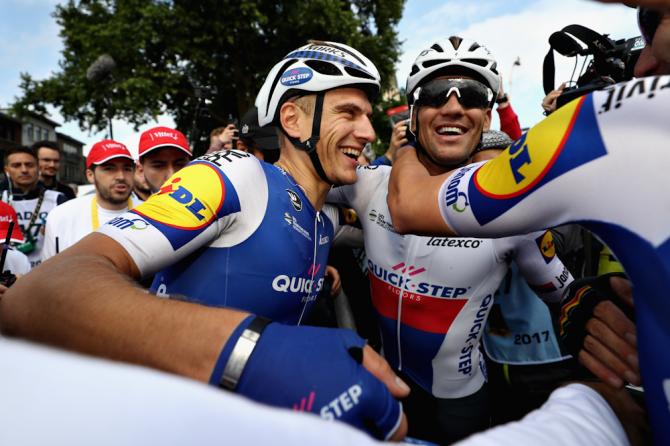
For 2018, Kittel has signed with Katusha-Alpecin. “Looking forward to a new challenge, nice team and unlimited hair products,” he tweeted in August. He might also have added, “And fewer co-leaders.”
Kittel has been one of many huge talents at Quick-Step. As the best sprinter in the world, he was a team leader. But so were Gilbert and Julian Alaphilippe in the hilly Classics, Dan Martin in the hilly Classics and stage races, and Tom Boonen and Niki Terpstra in the cobbled Classics. Kittel’s five Tour stages were almost matched by Fernando Gaviria’s four at the Giro and Matteo Trentin’s four at the Vuelta. Patrick Lefevere has a track record of keeping his many leaders happy, but the competing ambitions of Gaviria and Kittel looked set to cause friction in 2018.
“This situation is like a sprint,” he says. “You have to follow your own path and not look at others. I had to take a decision. I’m thankful for my time with Quick-Step – they brought me back to where I originally came from and where I wanted to be again. It’s a fantastic team with great team spirit. But it was clear that Fernando would stay in the team. I’m not angry at anyone, but I only have a certain amount of time on my bike and I don’t want to waste it discussing my chances of starting the Tour.”
Kittel wanted to bring Fabio Sabatini with him – the two work well together in the sprints – but he’ll have to build a new lead-out at Katusha. The thinking is that Rick Zabel, Nils Politt and Marco Haller will be his key allies. It’s a new formation, but Kittel is at the height of his powers.
“It’s important for me to go my way,” he says. “I do that in my career and personal life – I follow my feelings and my instinct and I don’t try to do crazy things. It’s important that I can plan things, that I have a goal and that I have the right people around me. These three things give me a calm feeling.”
When Kittel sprints well he tends to follow a straight line. He is less at home in a messy, technical sprint. And so he is too, it seems, in life.
To subscribe to Procycling, click here.
Edward Pickering is Procycling magazine's editor. He graduated in French and Art History from Leeds University and spent three years teaching English in Japan before returning to do a postgraduate diploma in magazine journalism at Harlow College, Essex. He did a two-week internship at Cycling Weekly in late 2001 and didn't leave until 11 years later, by which time he was Cycle Sport magazine's deputy editor. After two years as a freelance writer, he joined Procycling as editor in 2015. He is the author of The Race Against Time, The Yellow Jersey Club and Ronde, and he spends his spare time running, playing the piano and playing taiko drums.